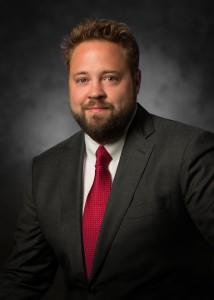What influenced your decision to enter the oil and gas industry?
Living in Houston, I had a surface-level awareness of the industry. My brother had a part-time job at a local steel forging company while he was finishing up school, and he was able to arrange a tour. As soon as I saw and felt the heat of a 30,000-pound blowout preventer forging at 2,200 degrees up close, I was hooked.
What was your impression of the industry beforehand and how has it evolved?
I came into the industry during peak WTI pricing in 2008 and initially it seemed as if the growth was unstoppable. What I witnessed very early in my career taught me how dynamic this industry is and how quick it adapts to new challenges.
What have you found to be the most surprising about the industry?
I am perpetually surprised at the engineering and technological difficulties the industry solves. Most people have no idea what goes into turning their lights on or driving to work. The fact that drillers can hit a small geological formation from miles away, or that we can work in the most grueling environments on earth, continually amazes me.
What do you find most challenging and most rewarding about the industry or your work?
The status quo is not only the source of my biggest challenges, but also my biggest rewards. “We’ve always done it that way” is one of the most damaging phrases in a business environment. Breaking that mentality is what ultimately keeps the company stable in a cyclical market and drives future success.
Where do you hope to see the industry develop over the next five years?
I hope to see the industry embrace the adoption of a more technologically connected ecosystem. We have a new generation entering the workforce and there is still much to embrace from an ever-connected world.
What role do you believe you will play in the industry’s future?
My goal is to continue to influence and transform the business development and marketing landscapes for manufacturers in this industry. The climate looks very different now than it did 10 or even five years ago, and it will continue to change.
How has your involvement in PESA supported your career goals?
PESA is a priceless conduit to expand your network throughout the industry. We are all in the same boat and you need to know your fellow oarsmen. Because of PESA events, Supply Chain Committee and Executive Leadership Program, I have a noticeably stronger industry acumen.
Tell us about some of the people you’ve met while working in the industry and how they’ve impacted your thinking.
This industry has solidified my belief in the phrase “you can learn something from everyone.” I have had contact with an enormous spectrum of people, such as shop porters, CEOs of multinational companies, entrepreneurs, my mentors, government officials and clients from every background, all of which have contributed to my personal growth in one aspect or another.
What are you most excited about for your career, your company and your industry?
I am most excited to see how this industry changes during the next cycle, and I think everyone at Galtway Industries has the best view. Anyone who has interacted with our group knows that we not only share that enthusiasm for our business climate, but we continually create new synergies between companies and people that echo for years.
What would you tell someone who is thinking about entering the oil and gas industry?
This is a cyclical industry, but it is important to understand that these cycles spawn opportunities. There will always be problems that need solving, and if you push yourself to continually improve you will have a long and fulfilling career. Don’t stop asking questions, nor giving answers.
What do you wish other people knew about oil and gas?
I wish that those outside of the industry understood the efforts that we all strive to maintain a high level of health, environmental and safety performance. Coming from the metals side, we remain highly cognizant of what our products are containing, and this keeps quality and consistency at the top of the priority list.





